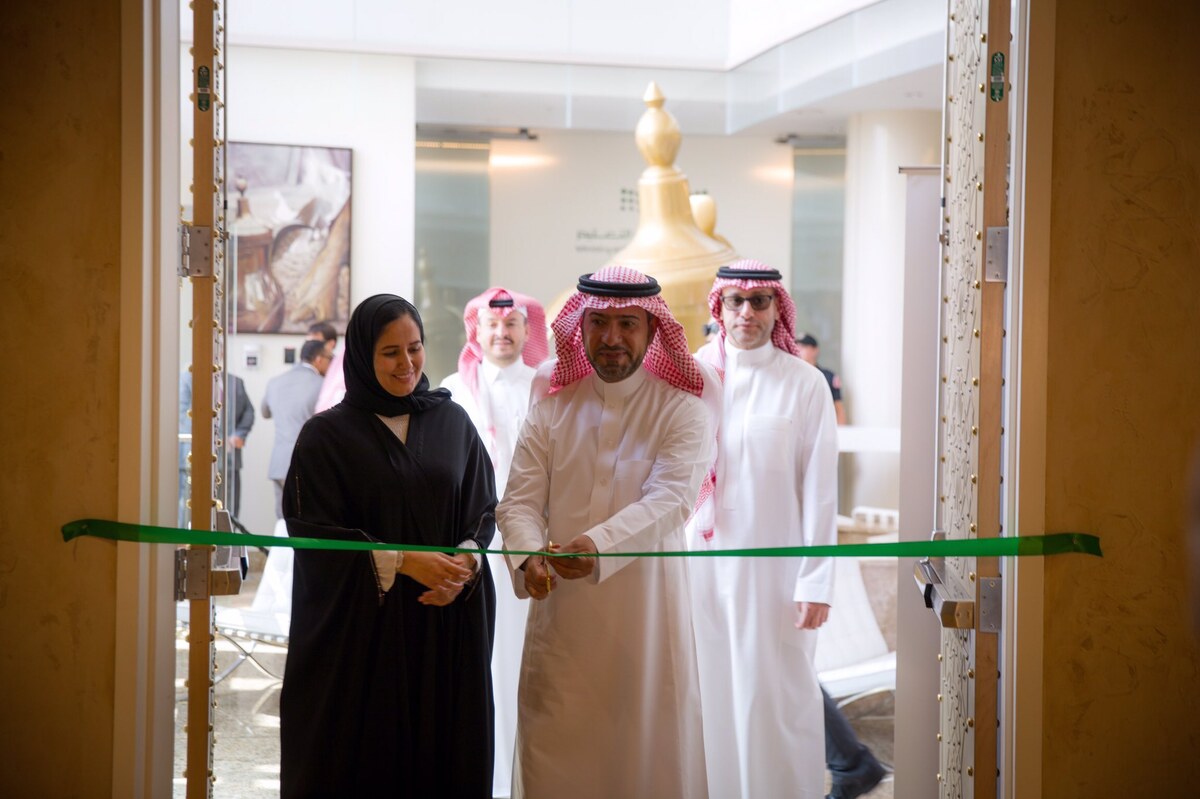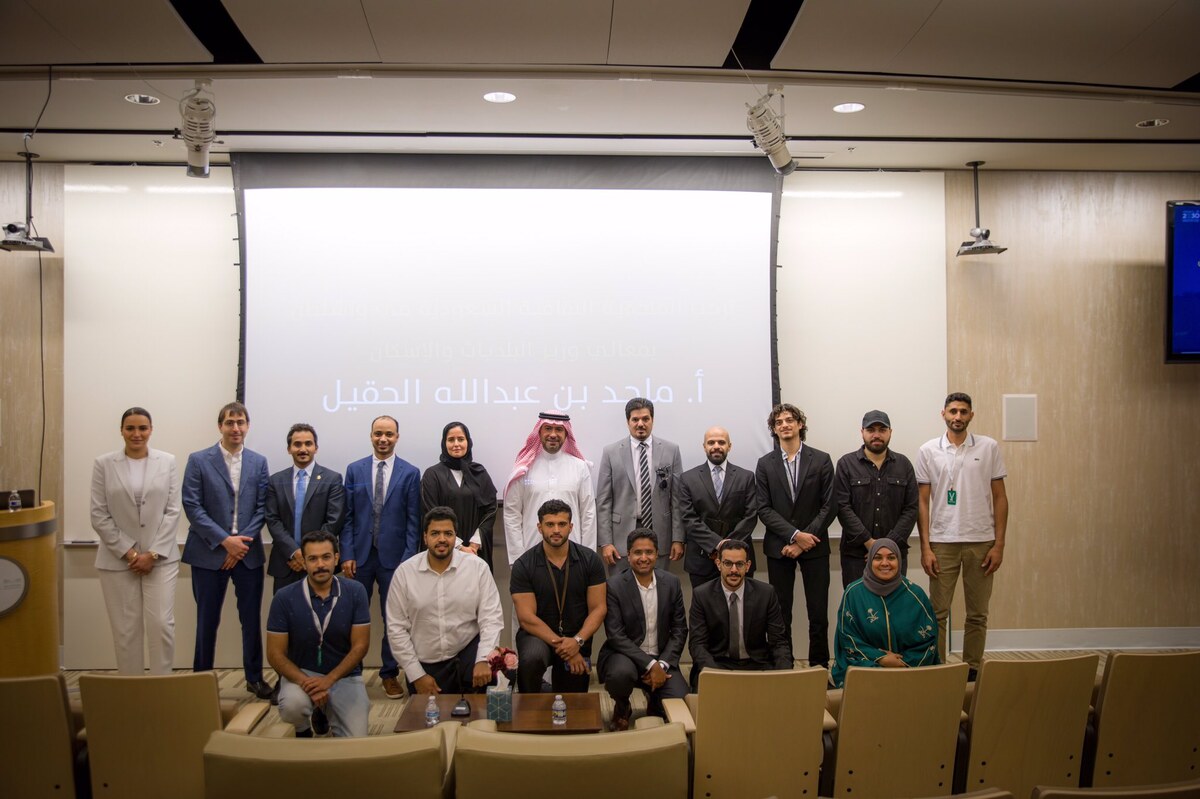RIYADH: Big 5 Construct Saudi 2025 returned for its 13th edition in a groundbreaking two-week format, running from Feb. 15— 18 and 24— 27 at the Roshn Front in Riyadh.
The expansion aligns with the Kingdom’s construction boom, driven by Vision 2030 and a $1.7 trillion pipeline of mega and giga-projects.
The event was inaugurated by Mohammed Abdulaziz Al-Ajlan, chairman of the Saudi Contractors Authority, with the new two-week format designed to meet the increasing market demand and sector-specific growth opportunities within the Kingdom’s construction industry.
In its first week, Big 5 Construct Saudi hosted the 5th edition of the International Contracting Conference, organized by the SCA and dmg events, bringing together senior government officials, industry leaders and experts to discuss the future of construction in the Kingdom
In his keynote speech at the ICC, Al-Ajlan said the event “serves as an important platform for thought leadership and strategic discussions” that will shape the future of the construction industry as Saudi Arabia accelerates toward its Vision 2030 goals.
He added: “As a testament to the Kingdom’s leadership in construction excellence, Big 5 Construct Saudi complements our mission at the SCA to empower stakeholders, drive sustainability, and champion advancements that will propel the sector to new heights.”
Industry leaders participated in discussions on advancing sustainability and environmental, social and governance goals in Saudi Arabia. Sinan Rasheed, director of sustainability at New Murabba, highlighted the critical role of transparency and accountability through robust ESG reporting and compliance frameworks.
In its first week, the forum welcomed professionals from across the industry to explore innovations in the foundational stages of construction, spanning structural development, materials and engineering solutions, with co-located events including Heavy Saudi Arabia, Totally Concrete Saudi Arabia, and HVAC R Saudi Arabia.
“As we opened the doors to this year’s Big 5 Construct Saudi, construction industry professionals are gathering to explore key sectors such as heavy construction, concrete, HVAC, MEP technologies and building materials in the first week of the event, ” said Matt Denton, president at dmg events.
“The expanded two-week format not only enhances the attendee experience but also ensures that professionals can find the tools and technologies they need, representing every segment of the construction value chain. The first week specifically focuses on products and solutions for projects in the foundation to ground-up stages, aligning perfectly with the Kingdom’s growing construction demands,” he added.
On the sidelines of Big 5 Construct Saudi, Masdar signed a partnership with the Public Investment Fund, not long after PIF acquired a 30 percent stake in the building and construction materials company by subscribing to new shares via a capital increase.
According to Masdar, the strategic partnership strengthens the company’s position in the sector and drives growth to contribute to Vision 2030.
Faisal Majid Al-Muhaidib, CEO of Masdar, told Arab News: “We are a leading building material company, active in 29 cities in Saudi Arabia with 105 branches. Last week we announced that PIF has invested 30 percent in Masdar shares. So today they are our partners. This is a very big leap for Masdar.”
Al-Muhaidib said PIF has invested in the company as it seeks to localize the supply chain within Saudi Arabia, enhance the customer experience while shopping for building materials, and accelerate growth within the sector in the Kingdom.
He said: “We strongly believe that today we are living in the golden age of the construction industry in Saudi Arabia. We have wise leadership, a clear vision and a very supportive government. Saudi Arabia has always been a place of stability within the region. We are very much optimistic about the future.”
The CEO said in 2024 the building material sector size was around SR380 billion ($101.32 billion), and it is expected to reach SR500 billion by 2030.
“With works in progress for several mega projects, major sporting events and oil and gas there, we see many sectors open within Saudi Arabia for the building and construction material,” Al-Muhaidib said.
Abdulmajid Al-Rashoudi, governor of the SCA, described the construction sector as standing “at the heart of the Kingdom’s Vision 2030”.
He added: “At the SCA, we are committed to building an ecosystem that drives innovation, strengthens local capabilities, and attracts global expertise.
“Our ongoing partnership with Big 5 Construct Saudi, the largest construction event in Saudi Arabia, is a testament to this vision.
“It provides a world-class platform that connects public and private sector leaders and industry experts, showcases cutting-edge solutions, and accelerates knowledge exchange, thus playing a significant role in building a future-ready construction sector.”
Over 2,000 exhibitors from more than 60 countries are expected at Big 5 Construct Saudi across the two weeks, showcasing the latest products, services, systems and solutions.
As part of the EcoTrail feature on the opening day, one of the exhibitors, Dewalt, demonstrated its battery-powered tools that reduce carbon emissions by up to 60 percent.
Another exhibitor, LumiCon by Brickeye, presented real-time Internet of Things-based concrete strength monitoring which eliminates excess material waste and improves efficiency.

























